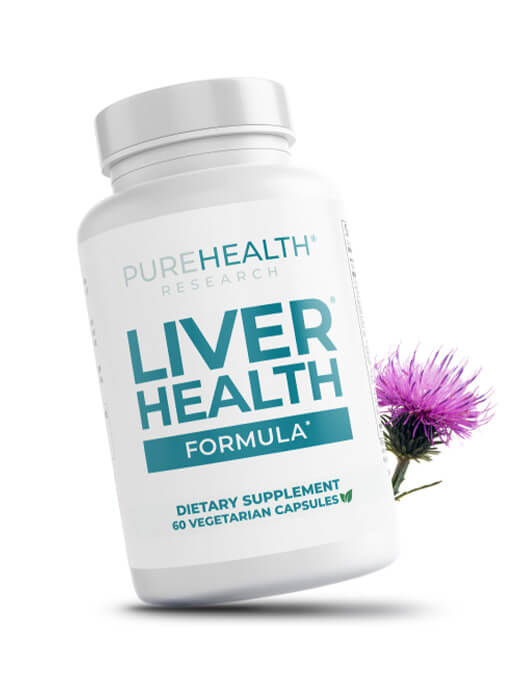Ginger
- Latin Name: Zingiber officinale
- Common Name: Ginger
- Category: Zingiberaceae
- Source: Southeast Asia

What is Ginger?
The ginger is a flowering plant whose rhizome (ginger root) has been widely used as a spice and a folk medicine for thousands of years.
Ginger is available in various forms, including:
- Fresh root
- Dried root
- Powdered ginger
- Ginger tea
- Ginger oil
Ginger powder, a popular form of the spice, offers convenience and a concentrated flavor. It's easily incorporated into recipes and can be used to make ginger tea.
Ginger Benefits
Ginger offers remarkable health-supporting properties that have been valued for generations in traditional medicine. Here are the key benefits of this time-tested root:
PureHealth Research Products with Ginger
Gut Antioxidants, Joint Support, Liver Health Formula
Ginger Dosage
Recommended daily intake:
For General Wellness
Up to 4 grams of fresh or dried ginger daily
For Targeted Support (e.g., nausea, mild digestive upset)
1-2 grams daily
During Pregnancy
Not to exceed 1 gram daily (please check with your healthcare provider first)
Children Under Age 2
Not recommended for this age group
Note: These dosages are general recommendations and may vary depending on individual health conditions, the form of ginger used (fresh, dried, extract, etc.), and other factors.
Interactions with Other Ingredients
Being mindful about how ginger works with your current medications is important for your well-being. The natural compounds in ginger can influence blood-related factors, which means extra care is needed if you're taking daily aspirin, prescription blood medications, or related supplements.
For your safety and best results, keep a 2-3 hour gap between taking ginger and these medications. Always have a conversation with your healthcare provider about using ginger alongside your current medications, as they know your health history best.
Ginger Side Effects
While ginger is generally safe and well-tolerated, it's helpful to understand how your body might respond to it. Most people do very well with ginger when taking the recommended amounts. For your best experience, try taking ginger with meals and start with smaller portions to see how your body responds.
You might notice gentle effects such as a warming sensation, temporary changes in digestion, or mild stomach adjustments. Some people occasionally experience mild heartburn, a gentle warming feeling, or temporary changes in taste sensation. These effects are typically mild and temporary. If you notice any unusual responses, simply adjust your serving size or consult with your healthcare provider for personalized guidance.
What is the best substitute for ginger?
Depending on the recipe, alternatives like galangal, turmeric, or cardamom can sometimes be used. However, each has a unique flavor profile, so results may vary.
How much ginger should you intake a day?
There's no standard dosage, but consuming up to 4 grams of ginger per day is generally considered safe for adults. Always consult a healthcare provider for personalized advice.
Is having too much ginger a bad thing?
While ginger is generally safe, excessive consumption may lead to mild side effects in some people. It's best to use ginger in moderation as part of a balanced diet.
Does ginger help with bloating?
Ginger supports digestive comfort by gently stimulating digestive processes. Many people find it helps maintain normal stomach function and eases feelings of fullness. Adding small amounts to your daily routine may contribute to digestive comfort.
Is ginger good for acid reflux?
Ginger may help maintain comfort for some individuals experiencing occasional acid reflux. Its natural properties support normal digestive function. Effects vary from person to person, so start with small amounts to see how your body responds.
Does ginger lower blood pressure?
Some studies suggest ginger may have a mild blood pressure-lowering effect.
Does ginger make you poop?
Ginger can aid digestion and promote gut motility, which may facilitate bowel movements.
Does ginger help with inflammation?
Yes, ginger has anti-inflammatory properties.


